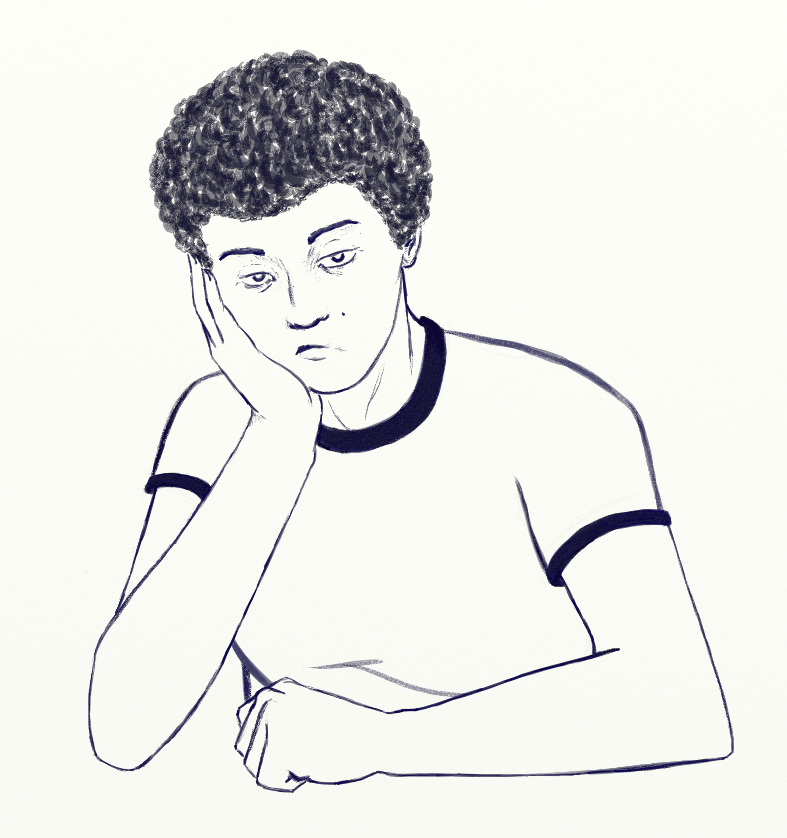T2 Contracts First Recorded Case of Early-Onset Senioritis
November 16, 2018
In what has been described as “the most bizarre medical anomaly of our time,” a T2 student has contracted the first known case of early-onset senioritis (EOS), NYC health department sources confirmed Wednesday.
Senioritis, which afflicts an estimated 100% of T4 students every year, had previously been known to be endemic to the senior population of UNIS. Symptoms of early-onset senioritis include having trouble focusing and staying motivated, chronic absences and latenesses from school, and excessive complaints about the International Baccalaureate.
According to Darwin’s third law of biology, underclassmen should be immune to the disease. That’s exactly why medical professionals are scratching their heads with this new case.
“In my 40 years of experience, I’ve never seen a case so pitiable, and I’ve seen some nasty diseases in my time. I’ve treated afflictions like mad cow disease and foreign accent syndrome. But this? It’s just awful. No high schooler deserves to have their life ruined before their time like this, or at least for another year or so,” said Dr. Bruce Johnson, the head of the Exotic Disease Department at NYU Langone Medical Center.
After being tested positive for EOS, the T2 student was immediately quarantined and transported via ambulance to Bellevue Hospital, where he is currently being tended to by a round-the-clock team of specialized doctors and nurses flown into New York from around the country.
Early-onset senioritis is known by the medical community to be a purely theoretical disease, having been synthesized for the first time in rats in a medical lab by a team of British scientists in 2006. Yet while its chemical structure is well-known, its effects on the human body have not been closely studied due to the lack of naturally occuring cases. But now that a living, breathing human is infected, Dr. Johnson and his research team see a great opportunity to advance our knowledge of the disease.
“We’ve gotten some key information about how the disease spreads and how it functions,” continues Dr. Johnson. “We’ve ran the tests, and we’re seeing that EOS has caused our patient’s Q-cell count to be dangerously low—those are the cells that are responsible for passion. Hence you see the total lack of motivation that is associated with senioritis and EOS. Usually, the cure for a low Q-cell count is graduation, but obviously that won’t come anytime soon for our abnormally young patient… poor thing. So currently, we’re trying to distill graduation in medicinal form—call it a cure of sorts. We’re a long ways off from that. In the meantime, copious amounts of narcotics seems to do the trick. It sure is nice to see the little guy hopped up on uppers, his apathy completely forgotten.”
While the scientific community is celebrating this medical breakthrough, it’s been nothing less than a nightmare for the T2 student.
“I got a 6- on my last English journal. I didn’t even try. And I don’t even care. God, my senioritis is so bad.”
After sitting through two weeks of IB presentations and college nights from T4s (who have senioritis themselves) in the past weeks, the T2 student started to exhibit some symptoms. It started with just a few demotivational thoughts and some drowsiness, which he was able to shrug off. But soon, it had turned into a snowball of apathy, lack of motivation, and poor fashion choices. There was no denying it: this T2 had full-blown EOS.
“Now I can’t stop thinking about how much I hate the IB. But I don’t even know what that is. The International… something. I’m not sure. I’m only a sophomore. It’s not my time yet. But man, do I hate it with a passion. That and Higher Level… Bio? Something like that? Whatever it is, I’m tired of it. I can’t wait until I’m out of here.”
The T2’s EOS hit its peak when he commented on a cynical but relatable ‘IB Memes’ post on Facebook, where he protested the compulsory Theory of Knowledge course of the IB Diploma Program. This was the action that alerted his friends, who then proceeded to notify teachers and medical professionals of the T2’s strange online behavior. He was diagnosed with EOS later that day.
The T2 is expected to make a full recovery by September 2020, when his early-onset senioritis will hopefully morph into regular senioritis.



